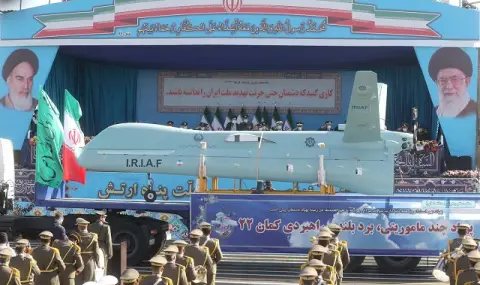Iran is threatening threats of a military strike against Israel, but even after the assassination of Hassan Nasrallah, the leader of the terrorist Hezbollah, no decisive action followed from Tehran. The reactions were quite selective. What is this due to.
When the commander of the Iranian brigades “Al Quds” Qassem Soleimani was killed in a US strike in Baghdad in January 2020, Iran's Supreme Leader Ayatollah Khamenei said it was a declaration of war and threatened massive retaliation. This was followed by Iranian strikes on air bases used by American troops in Northern Iraq, ARD recalls. The damage was mainly material, there were no victims.
Loud words, little action
When Israel began mass bombing the Gaza Strip after the Hamas terrorist attack in Israel on October 7, 2023, Iranian Foreign Minister Hossein Amir-Abdollahian threatened that if Israel continued its attacks on the defenseless people of Gaza, there would be no guarantee , that the conflict will not escalate.
In other words, Iran threatened to intervene in the war, ARD explains. But instead of following up with a mobilization of the Iranian army, in March of this year Hezbollah said that, after discussions with Tehran, a decision had been made to confront Israel on its own, and that Iran would not intervene directly.
Just as seven members of Iran's Revolutionary Guards were killed in a strike on the Iranian embassy in Damascus on April 1, Khamenei ordered Iranian missiles to fly toward Israel. However, Tehran directly stated that an attack was imminent and even warned Washington, ARD recalls. Only a few hours after the attack, which was largely neutralized by Israel, Iran declared that “the issue was closed”. There was no comment on how successful the operation was.
Abstinence despite humiliation
When Ismail Haniyeh, the leader of Hamas, which the US, EU and others designate as a terrorist organization, was killed on July 31 in Tehran and the attack was blamed on Israel's Mossad intelligence agency, the Islamic Republic again said there would be consequences. But there are none for now.
Tehran is apparently unwilling or unable to follow through on its threats. And especially after the elimination of Hassan Nasrallah, it further increases Iran's humiliation. It remains unclear whether Khamenei will order military retaliation for Nasrallah's death. Moreover, the Ayatollah's reactions were rather selective compared to previous statements. Iran's supreme leader announced that “Zionist criminals” are “too insignificant to be able to cause serious damage to the Hezbollah structure in Lebanon”.
There are probably two main reasons for the regime in Iran to refrain from military action, writes ARD. First of all, the Islamic Republic does not have the support of its citizens. Most Iranians want the regime to end and are unhappy that huge sums of money are being spent on supporting groups in Tehran's orbit while vast numbers of people in Iran live below the poverty line. For years, the Iranians have categorically demonstrated one thing - that they would not fight for Gaza, nor for Lebanon, but only for their homeland.
A threat to the regime in Tehran
On the other hand, if Iran were to attack Israel, Tehran would have to expect serious retaliatory strikes that would most likely seriously shake the regime there, rather than strengthen it. Even if Israel does not shell residential areas, but only critical infrastructure, the regime in Tehran is likely to face further public protests. In such a scenario, it is highly likely that Israel will also attack the nuclear facilities, some of which are underground, using bombs that can destroy bunkers, as it did in the attack on the Hezbollah headquarters.
So Ayatollah Khamenei and his followers will certainly be thinking hard about how to respond to the assassination of Hassan Nasrallah and whether they even want to enter into a military confrontation with Israel.
